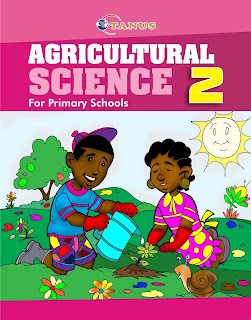In November, 2020, Agri Aware launched its latest edition of “Dig In! Learning about Life on the Farm and in the Countryside” [in Ireland].
The resource has been designed and produced for Primary School Teachers, and the four modules are targeted at pupils from infants (junior and senior) to sixth classes.
Module 1 is aimed at Infant classes pupils: four and five year-olds respectively.
Module 2 is targeted at pupils in first and second classes aged six and seven years respectively.
A page on ‘Food security’, the Lesson objectives of which states: “To introduce students to the concept of food security”.
The page also points to strands in three subjects in the Primary Curriculum: Science, Geography and SPHE, which links can be made, and a list of the following keywords: hunger, food, healthy, weather, extreme, Africa, Asia, aid.
Additionally, a page and section titled The story of agriculture in Africa can be found on page 40 of Module 1 (please, see below for photo shots of two pages from the resource).
It must be clarified that the lesson about The story of agriculture in Africa is not the work of Agri Aware, but was contributed by an organisation which is identified on the relevant pages in the four modules.
This commentary and analysis also accepts, and is not intended to question, Agri Aware’s bona fides in including the lesson on African agriculture in Dig In!
The lesson on The story of agriculture in Africa raises questions and issues, including the following:
- How accurate is the information about agriculture in Africa which is presented?
- The target ages the information is aimed at
- Whether this is the right way to introduce the topic to Irish children
The lesson begins with an answer to the question: What is food security?
This is followed by the question: Does every person have enough food?
In answering this, children are told that in other parts of the world, people have less food to eat, in contrast to Ireland where “people have plenty of food to eat”.
Introducing the term ‘developing world / countries’, this section attempts to explain the link between hunger, nutrition and agriculture.
Weather is also discussed in terms of extreme, harsh conditions: drought or flash flooding, which are given as the reasons for food shortages.
The final sentence under this heading is as follows: “Farming in developing countries is mainly used to feed the farmer’s own family and many small farmers can be left without food when harsh weather conditions arise.”
Module 1: Junior and Senior Infants (page 38)
The story of agriculture in Africa begins with the information below:
"Farming in Africa is tough. Hot climate, poor soils and small plots that must be farmed with very basic hand-tools make it difficult for families to make a living from the land. But they must, because more people in Africa depend on farming for their survival. Did you know that nearly 70% of people in Africa live on small farms?" Module 1: Junior and Senior Infants (page 40)
With regards to the information contained in The story of agriculture in Africa, and the preceding section, it is difficult to imagine how four and five year-olds can be expected to get their heads around information on crops totally removed from their personal everyday experience, as well as the concepts discussed. Also, 70% of how many people in Africa, since there is no reference to the population of the continent?
The National Council for Curriculum and Assessment (NCCA) specifies that introducing a non-European context (which would include Africa) should start from third class (eight year-olds), with some units to be taught in fifth and sixth classes (ten and eleven year-olds) only.
Perhaps, the NCCA’s rationale can also be explained by the two quotes in the box below?
The brief information below and images give an idea of agriculture and food-related matters in a school setting in an African context.
Providing children with the right information during their early childhood education, especially about the rest of the world outside their own country, is very important for their future role in society.
Textbooks like those below are examples of what fellow pupils in an African country would use to learn about agriculture and agricultural science.
The next blogpost on this topic will look at food and farming in Africa.
In the meantime, this News2day clip of a visit to a Primary School in Dublin on World Food Day 2019 might also be of interest to teachers and pupils?









